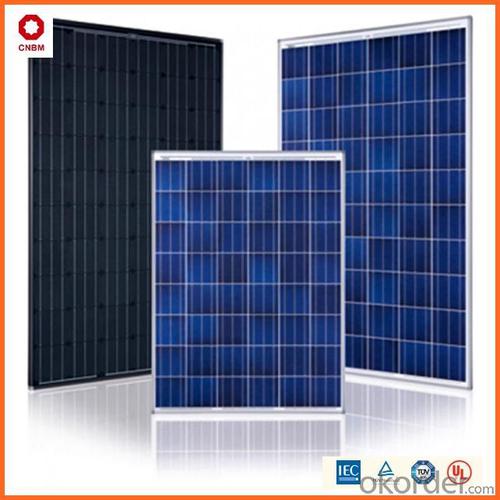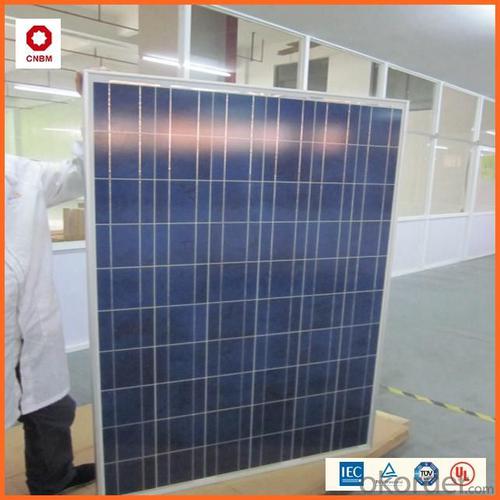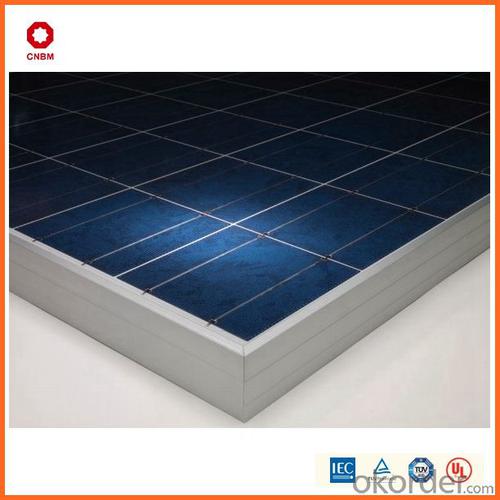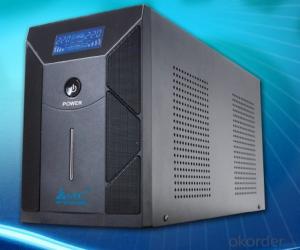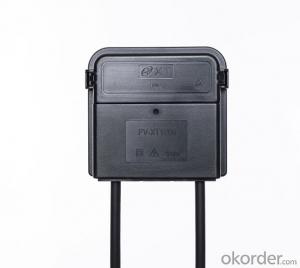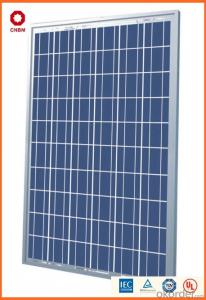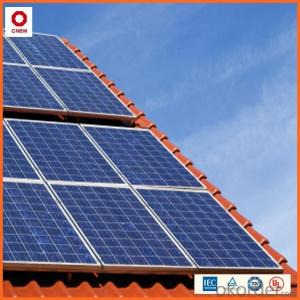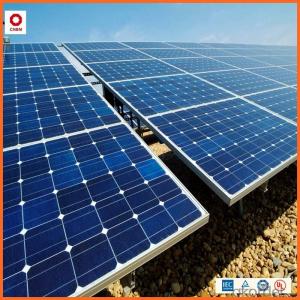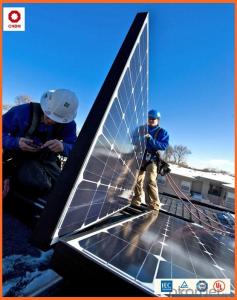El Sol Solar Energy Systems ☆☆☆Stock on Sale 260W Poly Solar Panel 0.45/W A Grade Good Solar Panel☆☆☆
- Loading Port:
- China main port
- Payment Terms:
- TT OR LC
- Min Order Qty:
- 1 watt
- Supply Capability:
- 10000000 watt/month
OKorder Service Pledge
OKorder Financial Service
You Might Also Like
Product Description:
Hot Sale !!! Quality and Safety of 245w-320w Poly Solar Panel
1. Rigorous quality control meets the highest international standards.
2. High-transmissivity low-iron tempered glass, strong aluminium frame.
3. Using UV-resistant silicon.
4. IS09001/14001/CE/TUV/UL
Warranties of 245w-320w Poly Solar Panel
1. 10 years limited product warranty
2. 15 years at 90% of the minimal rated power output
3. 25 years at 80% of the minimal rated power output
Technical date of 245w-320w Poly Solar Panel
ITEM NO.: | Mono 125*125 cell ,36pcs . Power range from 80Wp-100Wp | ||||||||
Maximum Power(W) | 80 | 85 | 90 | 95 | 100 | ||||
Optimum Power Voltage(Vmp) | 17.81 | 17.89 | 17.94 | 17.99 | 18.06 | ||||
Optimum Operatige Current(Imp) | 4.78 | 4.91 | 5.12 | 5.35 | 5.59 | ||||
Open Circuit Voltage(Voc) | 21.98 | 22.05 | 22.14 | 22.28 | 22.45 | ||||
Short Circuit Current(Isc) | 4.95 | 5.15 | 5.36 | 5.65 | 5.84 | ||||
Solar Cell: | 125*125 Mono | ||||||||
Number of Cell(pcs) | 4*9 | ||||||||
Brand Name of Solar Cells | JA Cell, Bluesun Cell | ||||||||
Size of Module(mm) | 1580*808*35 | ||||||||
Caple & Connector Type | Pass the TUV Certificate | ||||||||
Frame(Material Corners,etc.) | Aluminium-alloy | ||||||||
Backing (Brand Type) | TPT | ||||||||
Cell Efficiency for 100W(%) | 15.8% | ||||||||
Weight Per Piece(KG) | 12.0KG | ||||||||
FF (%) | 70-76% | ||||||||
Junction Box Type | Pass the TUV Certificate | ||||||||
Tolerance Wattage(e.g.+/-5%) | ±3%, or 0-3% | ||||||||
Front Glass Thikness(mm) | 3.2 | ||||||||
Temperature Coefficients of Isc(%) | +0.04 | ||||||||
Temperature Coefficients of Voc(%) | -0.38 | ||||||||
Temperature Coefficients of Pm(%) | -0.47 | ||||||||
Temperature Coefficients of Im(%) | +0.04 | ||||||||
Temperature Coefficients of Vm(%) | -0.38 | ||||||||
Temperature Range | -40°C to +85°C | ||||||||
Surface Maximum Load Capacity | 2400Pa | ||||||||
Allowable Hail Load | 23m/s ,7.53g | ||||||||
Bypass Diode Rating(A) | 12 | ||||||||
Warranty | 90% of 10 years,80% of 25 years. | ||||||||
Standard Test Conditions | AM1.5 1000W/ 25 +/-2°C | ||||||||
Packing | carton or pallet | ||||||||
1*20' | 25 Pallets / 450pcs | ||||||||
1*40'STD | 25 Pallets / 100pcs | ||||||||
Features of our products:
• High conversion efficiency mono/poly-crystalline amorphous silicon solar cells
• Modules incorporate high performance bypass diodes to minimize the power drop caused by shading
• High transmittance, low-iron tempered glass
• High performance EVA encapsulant to prevent destroying and water.
• AI frame: without screw, corner connection. 8 holes on the frame can be installed easily
• Good performance of preventing from atrocious weather such as wind and hails
• Certifications: CE IEC TUV VDE UL, Class I
• 10 years 90% power output warranty

Shipping of 245w-320w Poly Solar Panel
By Sea | Delivery from Shanghai or Ningbo seaport |
By Air | Departure from Shanghai Pudong Airport |
By Express | Post by DHL, EMS, UPS, TNT. |
- Q: How long do solar energy systems last?
- Solar energy systems typically have a lifespan of 25 to 30 years, although some components may need to be replaced or upgraded during that time.
- Q: Can solar energy systems be used in areas with limited access to solar connectors and cables?
- Yes, solar energy systems can be used in areas with limited access to solar connectors and cables. Off-grid solar systems, such as stand-alone solar power systems or solar generators, are designed to function independently from the main power grid. These systems typically include batteries for energy storage, allowing the generated solar energy to be used even during periods of limited sunlight or at night. Therefore, they can be deployed in remote areas or areas with limited infrastructure, providing sustainable and reliable power solutions.
- Q: Can solar panels be installed on floating platforms or structures?
- Yes, solar panels can indeed be installed on floating platforms or structures. This innovative approach is known as floating solar or floating photovoltaic (PV) systems. These systems consist of solar panels mounted on floating platforms that are placed on bodies of water such as lakes, reservoirs, or even the ocean. Floating solar panels offer several advantages over traditional ground-mounted or rooftop solar installations. Firstly, they can make use of underutilized space on water bodies, where land is limited or expensive. This can be particularly beneficial in densely populated areas or in regions with high land costs. Secondly, floating solar panels can help to reduce water evaporation from reservoirs, lakes, or other water bodies, thus conserving water resources. Additionally, the water beneath the panels can help to cool the panels, improving their overall efficiency and energy output. Furthermore, floating solar panels can be easier to install and maintain compared to ground-mounted systems. They often require less land preparation and can be deployed and relocated relatively quickly. Maintenance and cleaning of the panels can also be simpler, as they can be accessed directly from the water surface. Floating solar systems have gained popularity in recent years and have been successfully implemented in various countries around the world. They have proven to be a viable and sustainable solution for generating clean and renewable energy, while also addressing land constraints and water conservation. In conclusion, solar panels can be installed on floating platforms or structures, providing an innovative and efficient way to generate solar energy while utilizing underutilized water surfaces.
- Q: Can solar energy systems be used in powering beauty salons or spas?
- Certainly, beauty salons and spas can utilize solar energy systems to effectively power their establishments. Solar energy is a source of power that is both renewable and sustainable, enabling these establishments to decrease their reliance on traditional electricity and minimize their carbon footprint. Installation of solar panels on the rooftop or other suitable areas allows beauty salons and spas to generate their own electricity, resulting in long-term cost savings. Beauty salons and spas typically have high electricity requirements for operating various equipment such as hair dryers, hair straighteners, curling irons, lighting, and air conditioning. Solar energy systems are capable of meeting these power demands, particularly during daylight hours when the sun is shining. Any excess electricity generated during the day can be stored in batteries or directed back into the grid, ensuring a continuous and reliable power supply. Furthermore, by adopting solar power, beauty salons and spas can enhance their sustainability and environmental performance. This transition to solar energy enables these establishments to significantly reduce their carbon emissions and actively contribute to the global fight against climate change. Additionally, the use of solar energy can attract environmentally conscious customers who value businesses that prioritize sustainability. To summarize, solar energy systems present a viable solution for powering beauty salons and spas. They provide a dependable and sustainable source of electricity, while also offering cost savings and supporting greener and more environmentally friendly business practices.
- Q: Can solar energy systems be used in areas with high levels of snowfall?
- Yes, solar energy systems can still be used in areas with high levels of snowfall. While snow can temporarily reduce the energy production of solar panels, they are designed to withstand heavy snow loads. Additionally, the angle and positioning of the panels can be adjusted to help snow slide off more easily. Regular maintenance and cleaning can also ensure optimal performance during snowy periods. Overall, with proper installation and management, solar energy systems can still be effective in areas with high snowfall.
- Q: Are solar energy systems suitable for residential use?
- Yes, solar energy systems are suitable for residential use. They are a clean and renewable source of energy that can reduce electricity bills, decrease dependence on the grid, and contribute to a more sustainable and environmentally friendly lifestyle. With advancements in technology and decreasing costs, solar energy systems have become more accessible and efficient, making them a viable option for residential properties.
- Q: What are the disadvantages of using solar energy?
- One disadvantage of using solar energy is its intermittent nature, as it is dependent on sunlight availability. Factors such as cloudy weather or nighttime can limit its energy generation. Additionally, solar panels and the necessary equipment can be expensive to install, which may deter some individuals or businesses from adopting solar energy.
- Q: Are there any regulations or permits required for installing solar energy systems?
- Solar energy systems require regulations and permits for installation. The specific requirements vary depending on the location and jurisdiction, as regulations are set at local, state, and national levels. These regulations and permits are in place to ensure the safety of solar energy system installations, compliance with building codes, and adherence to local zoning requirements. Typically, a solar energy system installation requires a building permit. This permit guarantees that the installation is done correctly and follows all necessary safety guidelines. The permit process involves submitting detailed plans and documentation, including structural engineering reports and electrical diagrams. The local building department reviews these documents to ensure compliance with applicable codes and regulations. In addition to building permits, there may be other permits or approvals necessary for solar energy systems. These could include electrical permits, zoning permits, or even historic preservation approvals in certain areas. It is crucial to consult with the relevant authorities and obtain all necessary permits before installing a solar energy system to avoid legal or safety issues. Furthermore, some jurisdictions have specific regulations regarding the size, placement, and design of solar energy systems. These regulations aim to preserve the aesthetics of the area and ensure that the systems do not pose any risks or nuisances to neighboring properties. It is important to note that regulations and permit requirements are constantly changing and can differ significantly from one jurisdiction to another. Therefore, it is advisable to consult with local authorities or hire a professional solar energy installer who is familiar with the local regulations to ensure compliance throughout the installation process.
- Q: How do solar energy systems affect energy bills?
- Solar energy systems can significantly reduce energy bills, as they generate electricity from the sun, eliminating the need to purchase as much energy from the grid. By harnessing solar power, homeowners can offset their electricity consumption, resulting in lower energy bills and potential savings.
- Q: Are there any risks of electrical hazards during installation or maintenance of solar energy systems?
- During the installation or maintenance of solar energy systems, there are indeed risks of electrical hazards. Working with high-voltage DC electricity in solar energy systems can be dangerous if not handled correctly. Here are some potential risks to be aware of: 1. Electrocution: Incorrect isolation or disconnection of solar panels can lead to electrocution for those working on the system. 2. Fire Hazards: Faulty wiring, loose connections, or improper installation can cause electrical arcs and sparks, potentially resulting in a fire if proper precautions are not taken. 3. Falls and Injuries: Installing solar panels on rooftops involves climbing ladders, working at heights, and handling heavy equipment. Carelessness can lead to slips, falls, and injuries. 4. Arc Flash: Working on live electrical equipment poses a risk of sudden energy release, known as arc flash. This can cause severe burns, hearing damage, and even death. 5. Environmental Risks: Although not directly related to electrical hazards, it is essential to consider environmental risks during solar energy system installation. Improper disposal of hazardous materials used in solar panels, such as lead, cadmium, or other toxic substances, can harm the environment if not handled correctly. To reduce these risks, it is crucial to follow proper safety protocols and guidelines during installation and maintenance. This includes wearing personal protective equipment (PPE), following grounding and isolation procedures, using insulated tools, and adhering to local electrical codes and regulations. Hiring trained and certified professionals for installation and maintenance is also recommended to minimize the risks associated with electrical hazards.
Send your message to us
El Sol Solar Energy Systems ☆☆☆Stock on Sale 260W Poly Solar Panel 0.45/W A Grade Good Solar Panel☆☆☆
- Loading Port:
- China main port
- Payment Terms:
- TT OR LC
- Min Order Qty:
- 1 watt
- Supply Capability:
- 10000000 watt/month
OKorder Service Pledge
OKorder Financial Service
Similar products
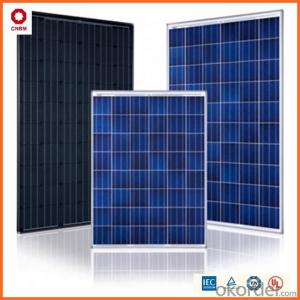
Solar Energy Systems Spain ☆☆☆stock on sale 255w poly solar panel 0.45/w!!!!☆☆☆ a grade good quality
Hot products
Hot Searches
Related keywords




